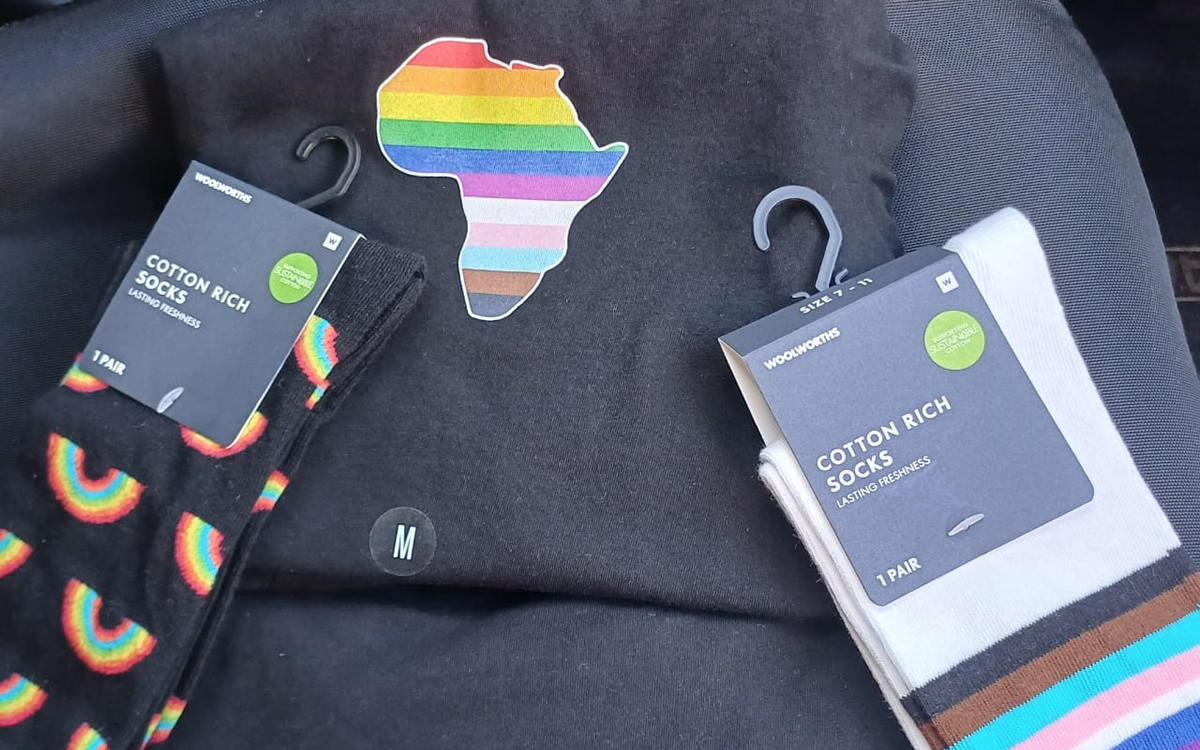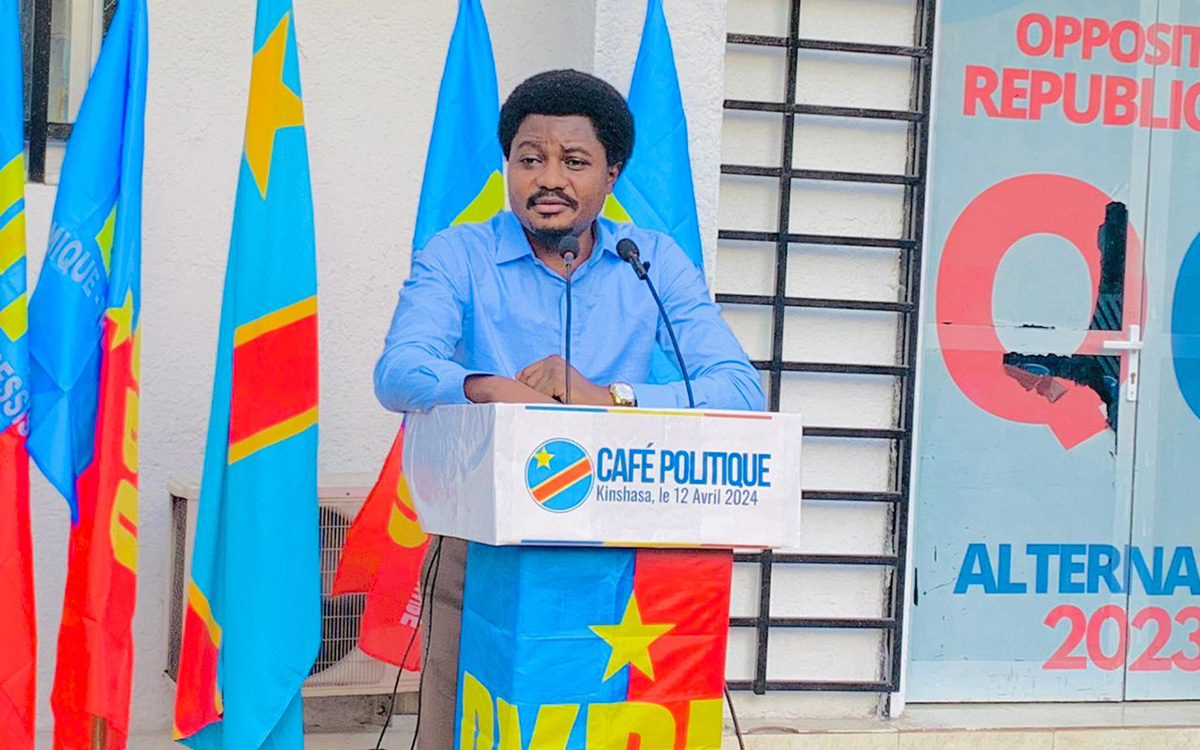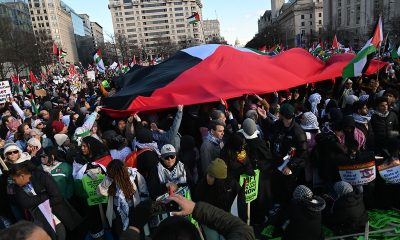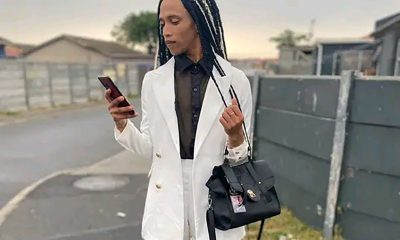Africa
South Africa retail giant supports Pride month despite customer backlash
Woolworths South Africa to continue selling LGBTQ-specific merchandize

A South Africa retail giant has vowed to continue celebrating Pride month and LGBTQ and intersex people despite backlash from some customers.
Woolworths South Africa said will continue offering its Pride regalia to its staff and selling merchandize that recognizes the LGBTQ and intersex community. Woolworths South Africa also said it has established a Woolworths Pride (W.Pride) team, citing its values are firmly in favor of kindness and inclusivity.
“We have established an internal W.Pride task team to give voice to and address issues faced by the LGBTQIA+ community. We have adapted our working wardrobe policy to recognize everyone’s unique preferences to style, cultural or religious needs and gender identity or expression. We have created a range of Pride merchandise and are donating funds to LGBTQIA+ support organizations,” said Woolworths South Africa. “However, we know that there is always more to be done; and we will keep looking for ways to enable, uplift and celebrate the LGTBQIA+ community. Our community guidelines don’t allow for hate speech or discrimination. Our values are firmly in favor of kindness and inclusivity.”
OUT, an LGBTQ and intersex rights organization that is based in South Africa, commended Woolworths South Africa and criticized the backlash it received from some of its customers.
“Woolworths’ public affirmation of LGBTQIA+ allyship aligns with South Africa’s vision of a society that guarantees equality, safety and dignity for all. It’s also clear that Woolworths recognizes the importance of celebrating diversity in the LGBTQIA+ community, rather than merely tolerating it,” said OUT Human Rights Coordinator Sibonelo Ncanana. “However, the level of hateful discourse we have seen on social media in response to Woolworths’ Pride campaign is disheartening and shameful. We urge the company and other LGBTQIA+ allies within the corporate sector to stand firm against fear and hate. They should remain steadfast in the knowledge that they are on the right side of history and our constitutional values.”
Activists hope to use Pride to raise awareness of anti-LGBTQ violence, discrimination
Although South Africa is the only African country on the continent that constitutionally recognizes LGBTQ and intersex people, sporadic attacks and hate speech remain common. One of the reasons is South African society remains oriented around cultural and religious beliefs that denounce LGBTQ and intersex people.
Violence against LGBTQ and intersex South Africans that includes rape, murder and mutilation also remains a problem.
Tankisho Tawanyana, a 34-year-old lesbian woman from Kimberly, last October was raped and killed by three men who later doused her with paraffin and set her on fire. Two women in April 2021 killed Khulekani Gomazi, a transgender woman from Mpophomeni.
Some LGBTQ and intersex rights organizations have therefore taken it upon themselves to try and ensure South African students are taught to accept people from different gender identities in order to curb attacks based on gender identity.
The Uthingo Network and 23 other civil society organizations have already raised a series of concerns about the ongoing queerphobic bullying and discrimination against queer students in South African schools and called on Basic Education Minister Angie Motshekga, to hold teachers accountable and create queer-affirming school environments.
“It does not matter who you are or whom you love, everyone has a constitutional right to be themselves. Uthingo Network promotes equal rights for LGBTQI+ South Africans,” said Uthingo Network.
Despite these problems, a number of LGBTQ and intersex rights organizations will host Pride events throughout South Africa in the coming months with the hope of raising awareness and end the discrimination and attacks against the community.
Africa
Ugandan activists appeal ruling that upheld Anti-Homosexuality Act
Country’s Constitutional Court refused to ‘nullify’ law

Twenty-two LGBTQ activists in Uganda have appealed this month’s ruling that upheld the country’s Anti-Homosexuality Act.
The Constitutional Court on April 3 refused to “nullify the Anti-Homosexuality Act in its totality.”
President Yoweri Museveni last May signed the law, which contains a death penalty provision for “aggravated homosexuality.”
The U.S. subsequently imposed visa restrictions on Ugandan officials and removed the country from a program that allows sub-Saharan African countries to trade duty-free with the U.S. The World Bank Group also announced the suspension of new loans to Uganda.
Media reports indicate Sexual Minorities Uganda Executive Director Frank Mugisha and Jacqueline Kasha Nabagesara are among the activists who filed the appeal.
Africa
Congolese lawmaker introduces anti-homosexuality bill
Constant Mutamba’s measure seen as distraction from country’s problems

A member of the Democratic Republic of Congo’s National Assembly who is a leader of the country’s opposition party has introduced a bill that would criminalize LGBTQ people.
Part of the bill that Constant Mutamba, leader of the Dynamic Progressive Revolutionary Opposition platform, has put forth states anyone who “commits a homosexual act (including acts and gestures) will be liable to a 5- or 10-year prison sentence.”
The country in recent years has seen government leaders and civic society target the community with anti-LGBTQ sentiments.
The Superior Council for Audiovisual and Communication, Media Regulatory Authority last June cautioned the media against showing LGBTQ-specific conversations. Several activists have criticized Mutamba’s bill, saying it seeks to move attention away from governance, service delivery and other pertinent issues in the country.
Sirius Tekasala, a human rights activist, said a person’s sexual orientation does not impact issues of governance.
“The proposed bill does not go in the direction of improving the socio-economic life of the Congolese people,” said Tekasala. “It’s not homosexuals who prevent you from doing your job well or from breathing. This is a violation of human rights.”
Mbuela Mbadu Dieudonné, a social analyst and trade unionist, said the bill is just a way of deviating people from the pertinent issues.
“He should suggest how to get the Congolese people out of this precariousness of life which is growing on a daily basis,” said Dieudonné. “When we don’t know the real problems of the Congolese people, he sets himself up as the great director of scenes to distract the Congolese people.”
Many Congolese, however, seem to support the bill and have applauded Mutamba for drafting it.
This is not the first time that such kind of a bill has been drafted.
An anti-homosexuality bill introduced in 2010 would have sentenced people who engage in consensual same-sex sexual relations to between three and five years in prison. The measure, however, did not become law.
Mutamba’s bill, however, may pass with Uganda’s Anti-Homosexuality Act in effect. The country’s Constitutional Court earlier this month upheld it. Burundi, Tanzania and other neighboring countries are also considering similar measures.
Many Congolese people view LGBTQ rights as a Western phenomenon that disregards their religious and cultural beliefs. LGBTQ Congolese are among those who have fled the country and sought refuge in the Kakuma refugee camp in Kenya and other places.
Consensual same-sex sexual relations are not criminalized in the Democratic Republic of Congo, but Congolese law does not recognize same-sex marriages.
Africa
Prominent transgender woman in Nigeria arrested, charged with defacing currency
Authorities say Idris Okuneye, known as Bobrisky, flaunted money

Nigeria’s Economic and Financial Crimes Commission’s decision to arrest a well-known transgender woman over the practice of flaunting money has sparked questions among several human rights activists.
Idris Okuneye, who is known as Bobrisky, was first arrested last Wednesday.
Justice Abimbola Awogboro of the Lagos Federal High Court on April 5 charged her with four counts of mutilating N490,000 (roughly $375.)
The EFCC alleges Bobrinsky between last July and August flaunted N50,000 (roughly $36) during a social event and N400,000 ($306) at another gathering last month. Bobrinsky has been charged with violating section 21(1) of the Central Bank Act of 2007.
“The Lagos Zonal EFCC, on Friday, April 5, 2024, secured the conviction of Idris Okuneye, (Bobrisky), before Justice Abimbola Awogboro sitting at the Federal High Court, Ikoyi, Lagos over mutilation of the Naira notes,” reads the EFCC complaint that misgenders Bobrisky. “He was arraigned on Friday on a four-count charge bordering on mutilation of the Naira notes to the tune of N490,000.”
“Justice Awogboro, thereafter, ruled, that upon the admission of guilt by the defendant, and following the evidence tendered, the defendant is declared guilty as charged,” adds the statement.
The EFCC said after listening to both parties, Awogboro delayed his ruling and also ordered that Bobrisky remain in EFCC custody. Activist Felix Abayomi said the EFCC was simply using Bobrisky as a scapegoat due to the fact that she is a vulnerable member of the society.
“Discrimination in the name of implementing a pick and choose law! Why go after someone that is a vulnerable member of our society? Someone that is clearly dealing and coping with stigmatization of her lifestyle choices which is innate. Using her as a scapegoat is uncalled for,” said Abayomi. “How does spraying the Naira that is cultural to us as a people ever even become a financial crime? People who commit economic and financial crimes against us as a people and against our nation state are sitting comfortably in the hollows of our legislative chambers and power.”
Chidi Odinkalu, the former chair of the National Human Rights Commission, said the arrest was not about the mutilation of the Naira notes, but about Bobrisky’s gender identity.
“The EFCC should be ashamed of themselves,” said Odinkalu. “The power of arrest and prosecution is a public trust that should not be weaponized for the persecution of those whom they don’t like. It is either the EFCC is evidently idle or this is a clear abuse of power.”
EFCC spokesperson Dele Oyewale said Odinkalu’s statements were reckless.
“The commission views such commentaries from Odinkalu as unbecoming of a former head of a major government agency,” said Oyewale. “Okuneye was arrested and arraigned by the commission on the basis of clear cases of abuse of the Naira to which he has pleaded guilty.”
“Odinkalu has a right to free speech as a Nigerian, but such a right should be exercised with decorum and responsibility,” added Oyewale. “The commission would not hesitate to take appropriate legal actions against such uncouth commentaries against its lawful mandate by anyone. Odinkalu is warned and advised to ventilate his rascally opinions more responsibly in future situations.”
Bobrisky is one of the few individuals on the African continent who has publicly discussed their gender transition.
Ever since she started to publicly show her transition, several Nigerian political pundits have been calling for her arrest. There are no laws that specifically target trans Nigerians, but the Same-Sex Marriage Act criminalizes same-sex marriages and prohibits the public display of same-sex relationships with up to 14 years in prison.
In states where Sharia law is practiced, those found engaging in same-sex sexual activities can be sentenced to death by stoning. Even those who identify as trans can receive 50 lashes or more.
Update: Awogboro on Friday sentenced Bobrisky to six months in prison without the option of paying a fine. Reports indicate authorities will send her to a men’s prison.
-

 Africa4 days ago
Africa4 days agoCongolese lawmaker introduces anti-homosexuality bill
-

 District of Columbia15 hours ago
District of Columbia15 hours agoReenactment of first gay rights picket at White House draws interest of tourists
-

 World4 days ago
World4 days agoOut in the World: LGBTQ news from Europe and Asia
-

 Arizona19 hours ago
Arizona19 hours agoAriz. governor vetoes anti-transgender, Ten Commandments bill












